Siriza and Janerose’s Long, Broken Road to Cleft Treatment
How your support reaches the most remote communities
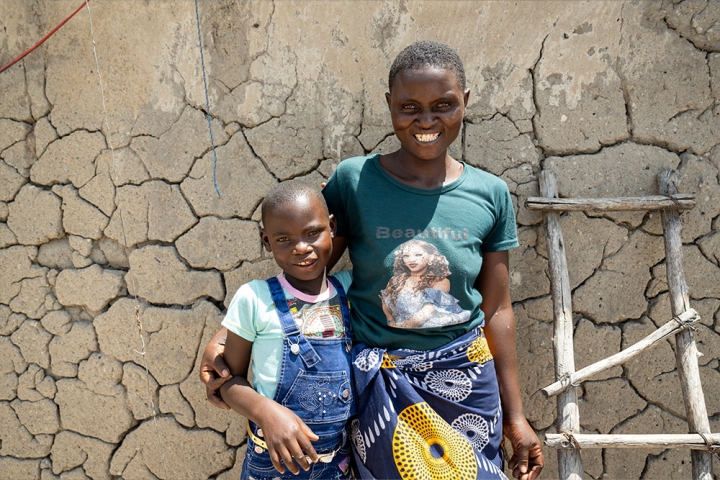
A few miles outside of downtown Harare lies a broken highway. For miles and miles, in 90-degree heat, people walk on both sides carrying loads on their backs and heads, while children run at their sides or all on their own. It is so narrow, and there are so many people walking on either side of it, that you assume it must be one-way, until a truck comes barreling toward you from the other direction, with another right behind it. You quickly pull over; the people on the shoulder hardly flinch. Get back on the road, and the signs of the city fade, yet the foot traffic hardly thins.
About two dozen miles down this road is an unmarked, blink-and-you’ll-miss-it alleyway that leads to a small, dusty village of dozens of chickens and a few thatch-roofed huts without plumbing or reliable electricity.
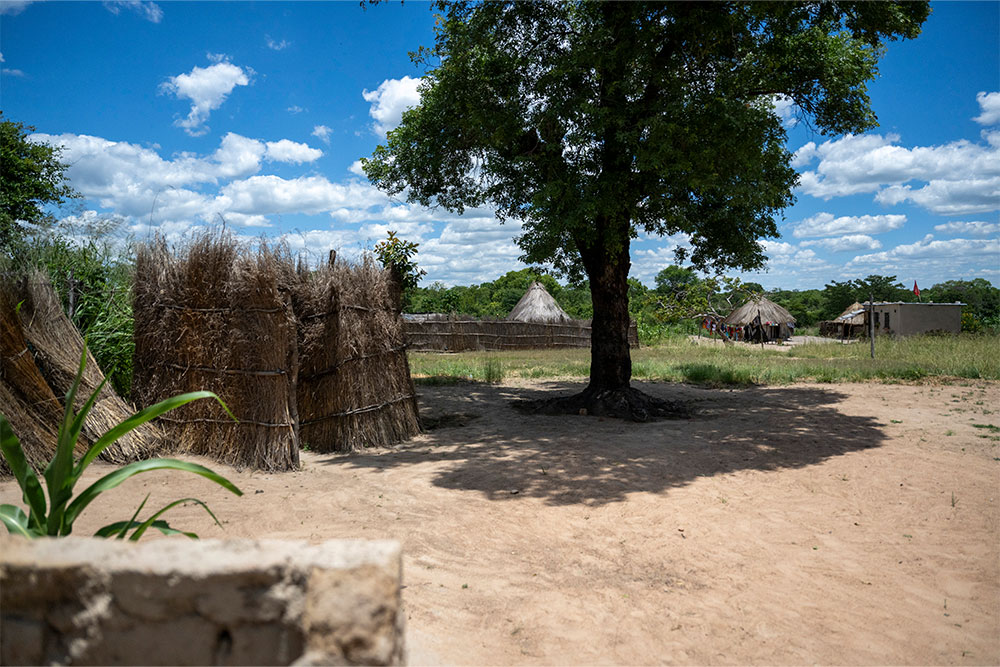
It is not an easy place to have a cleft, as Siriza can tell you. As a child, her classmates harassed her so much for her looks that she had to drop out of school.
“They could never understand what I was feeling,” she remembers now, nearly 30 years later.
Her family desperately tried to find help but could not afford any treatment. She spent much of her childhood at home.
Yet, growing up around only people who loved her had an unexpected benefit: It taught her to love herself, too. Eventually, she came to accept herself as she was, to “get used to the cleft,” as she put it.
When Siriza got older, she ventured outside of her village to work odd jobs wherever she could find them, mostly in people’s houses. That’s how she met a man who saw the beautiful person she was inside and out. His name was March. He had little income, but to Siriza, he was the partner she had always dreamed of. Still, when he asked her to marry him, she hesitated.
Since she was a small girl, she had spent many nights lying in the dark with her eyes wide open, terrified by thoughts of motherhood. How could she knowingly risk giving her baby a life like hers? But after a childhood of rejection and loneliness, she couldn’t pass up the chance to be with someone who made her happy.
Dreams of a Future
Siriza and March were very happy together, but life was still difficult. Neither could find steady income in their little village, so they moved to Harare. They didn’t have much more financial success there, so moved back after only a few years, but it was there that Siriza experienced two of the greatest joys of her life: the births of her first two children, neither of whom had a cleft.
Then her third child, Janerose, was born with a cleft. The moment Siriza first held her, her ears rang with the sounds of her childhood bullies calling her daughter all the names they had called her. Her mind’s eye wandered from the tiny, fragile baby at her breast to all the places she had been excluded and diminished, except now it was happening to her child and it hurt ten times worse. She felt so guilty — why did she think she could outrun fate forever?
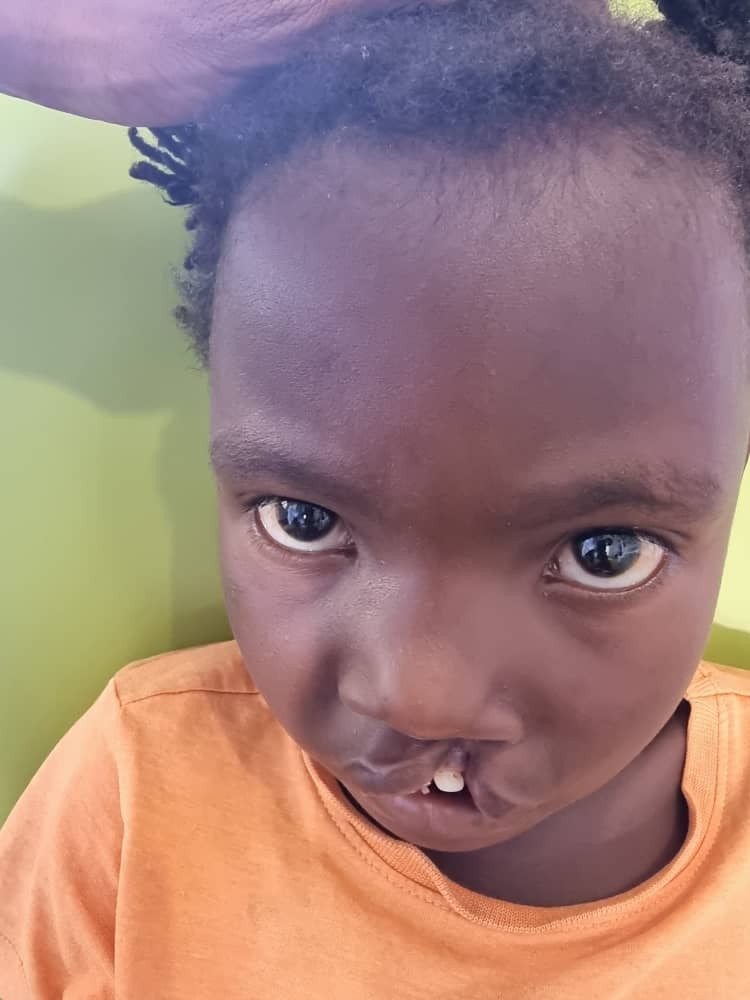
But Janerose didn’t only inherit her mother’s cleft; she also inherited her toughness. Even when food fell out of her mouth as she chewed, even when she had to repeat herself many times to be understood, she never got upset.
Hardly Recognizable
When Janerose was five, someone gave March a phone number. The man said that it was for a local hospital that treats clefts for free. March was skeptical but figured he had nothing to lose. He called and explained that his daughter and wife needed surgery, but he had no money. The woman on the other end was so friendly he could practically hear her smile as she assured him that that was no problem at all.
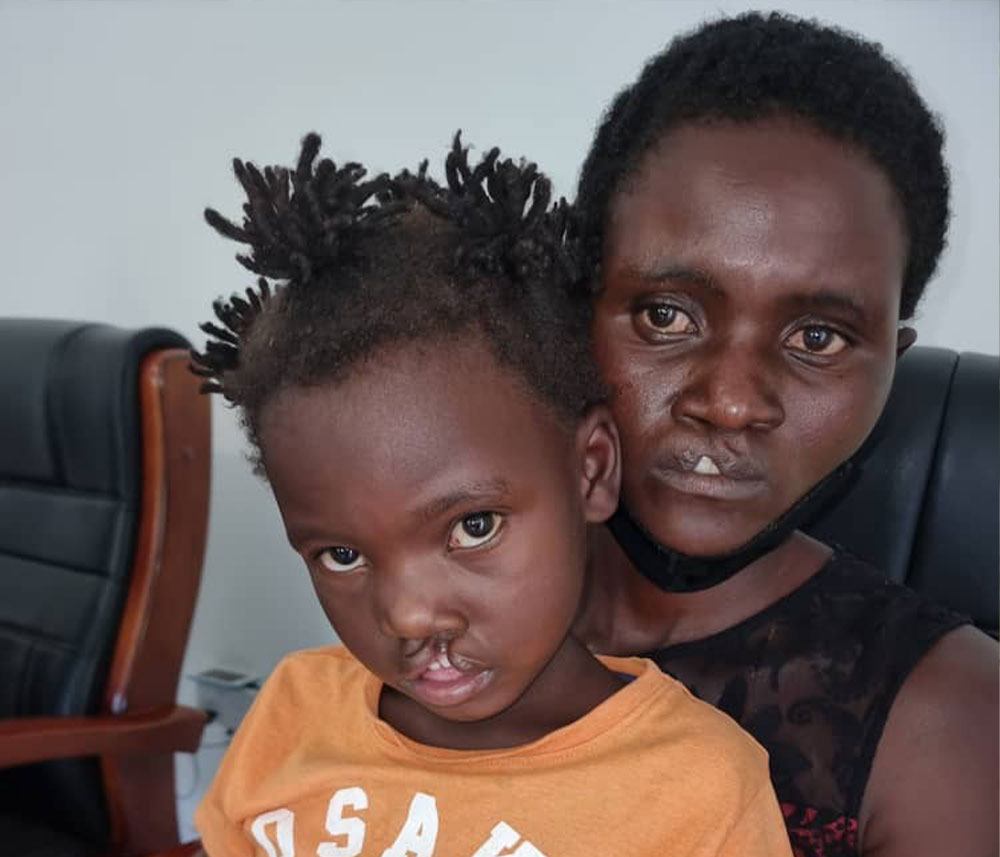
They left as soon as they could, making the long journey down the cramped, cracked highway back to Harare. Siriza insisted that Janerose have her surgery first. Of her 32 years with a cleft, the few hours her daughter was in the operating room were among the most painful. No one in the family had ever had surgery before. Siriza trusted the surgeon, who came from a similar background as her, but still cried as he took her baby away to cut into her. To change her.
“I feared I would never see her alive again,” Siriza said. “The medical team assured me that everything would be okay and they told me to sit down and relax. But the time seemed to pass so slow.”
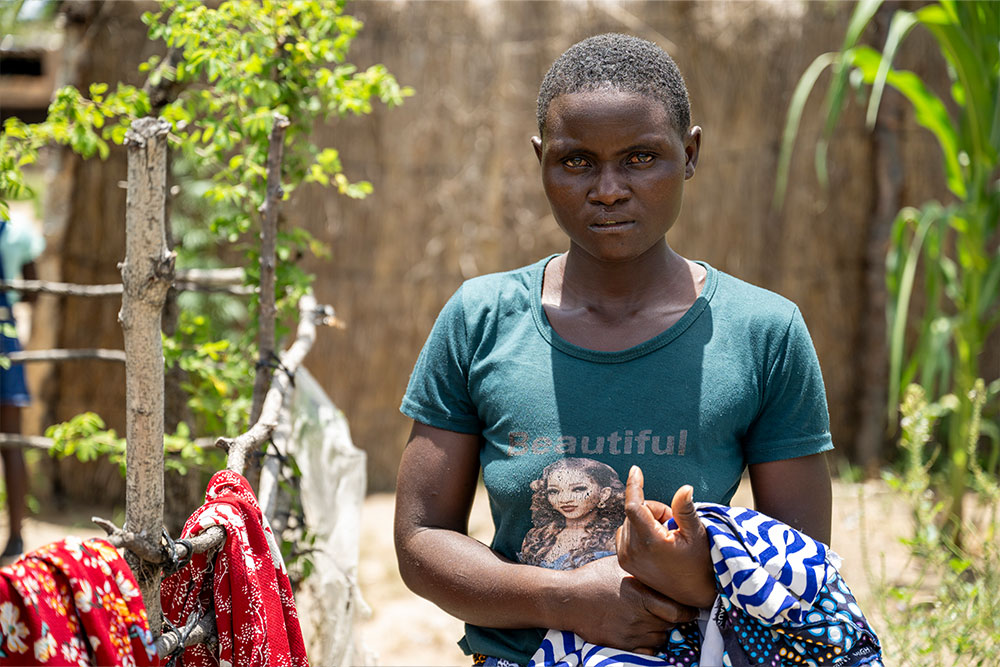
When Siriza woke up and looked in the mirror, she hardly recognized herself. She immediately picked up her phone and told her parents to come see her new smile.
Always Everywhere on Time
Unlike other cleft organizations that fly outside doctors on medical missions into then out of areas of need, Smile Train’s unique, sustainable model makes world-class cleft care available for free 365 days a year in over 75 countries. For families like Siriza and Janerose’s, it makes all the difference. It means they can receive care right away from a local cleft team who understands their language and their lives, and who they can trust will always be there for them no matter what.
Daring to Dream Again
Today, Janerose is in second grade. Siriza no longer worries about her future. Indeed, her new smile is the toast of the village, and both parents say the surgery has transformed her. She loves to play with her best friend, Pure, and to play ball with all the other kids around her. She still struggles to speak clearly, but here, too, Smile Train is there to help.
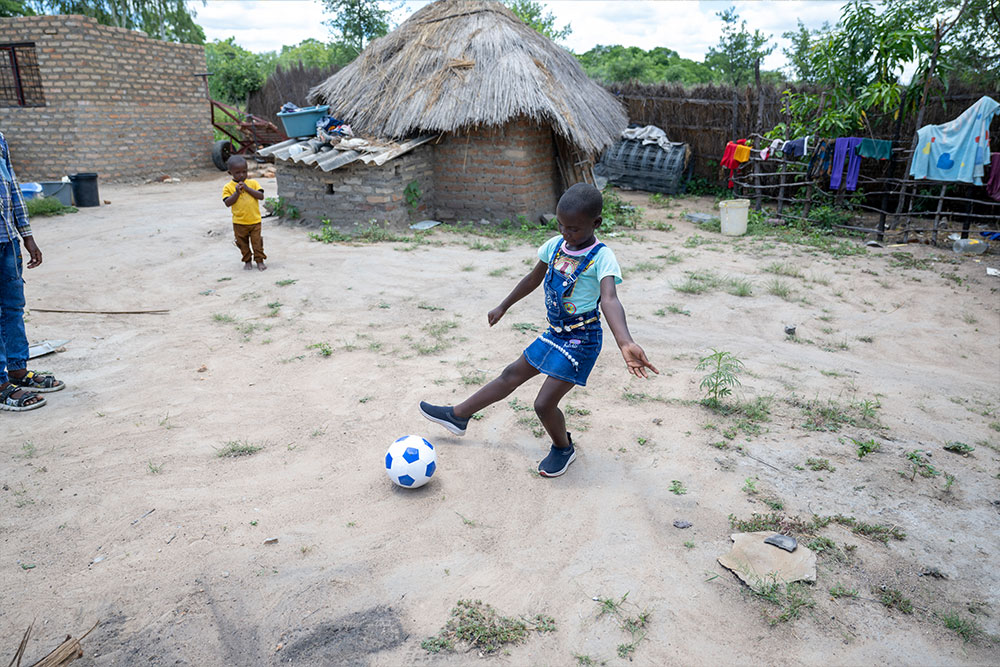
Just last year, Smile Train launched our first cleft-specialized speech programs in Zimbabwe. Though the providers are homegrown, they offer remote sessions, giving everyone in need access to consistent, personalized care.
It was a new start for Siriza, too. Once shy, Siriza is now an open book about her experience. She carries Smile Train’s number with her wherever she goes in case she meets anyone who needs it.
“I have started to dream again,” she beamed. “I want to start my own chicken farm one day.”
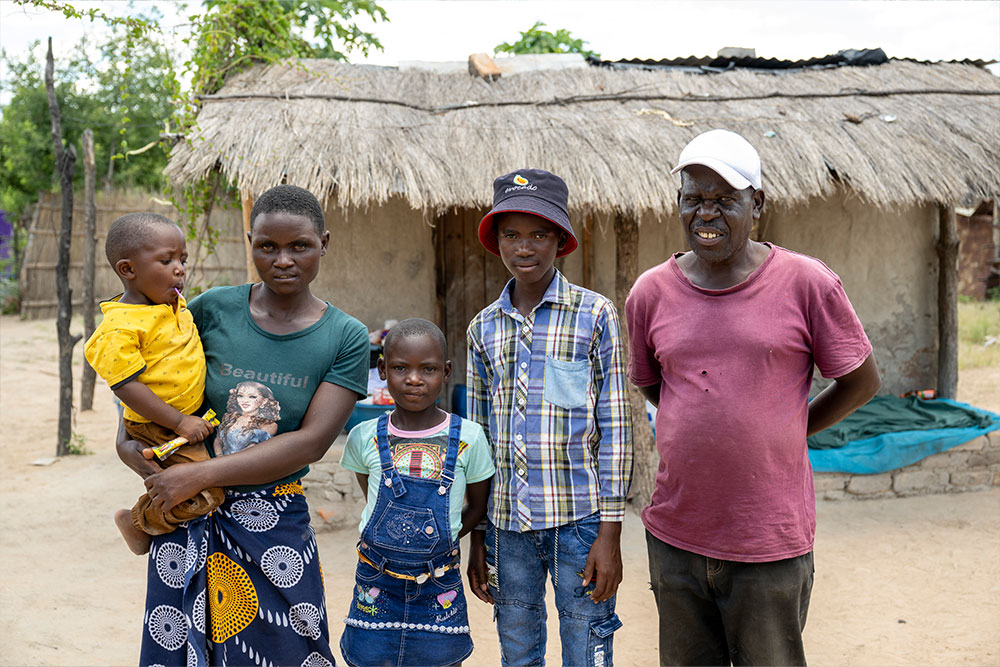
“I am grateful beyond words for what Smile Train has given to my family,” said March. “These surgeries change lives. They give everyone a better chance to do what they want and live better.”
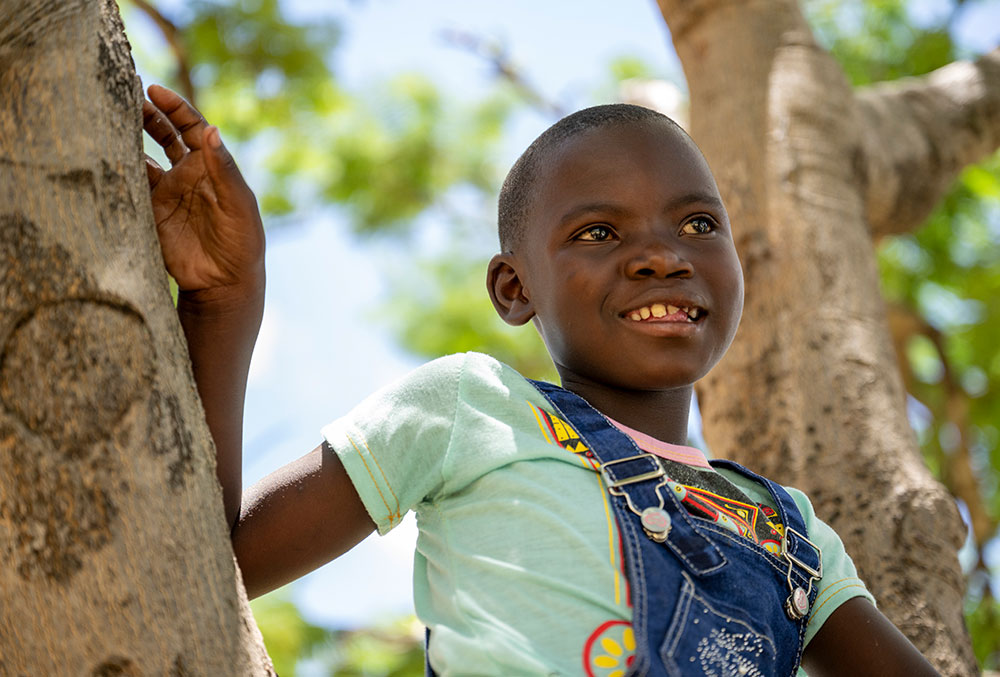
Siriza looked to Janerose playing in the field with her siblings and chickens and nodded. “My story and my daughter’s story is a happy one.”
Give people of all ages a second chance and a smile.
